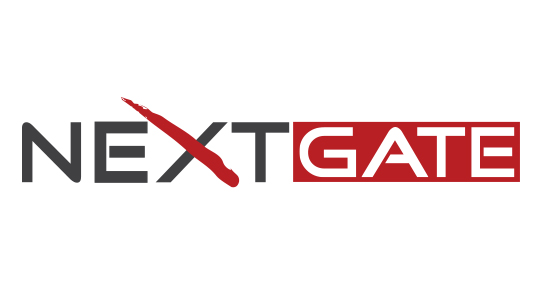Topic intro description here. Limited to 145 characters. Topic intro description here. Limited to 145 characters. Topic intro description here.
eHI Signs Letter to Secretary Becerra on Virtual Diabetes Prevention Programs
On April 6, eHI joined 16 organizations in sending a letter to Health & Human Services Secretary Xavier Becerra. The letter urges the Center for Medicare & Medicaid Services (CMS) to use emergency authority to waive in-person requirements from Medicare Diabetes Prevention Programs for the remainder of the COVID-19 public health emergency period.
eHI Member Policy Briefing: HIPAA Proposed Changes
WEBINAR: Vaccination Scheduling, Administration, and Documentation in a Digital World
The COVID-19 pandemic is the first mass vaccination effort in decades and it revealed cracks in our healthcare infrastructure. In the beginning of the vaccine rollout in many states, scheduling websites were unable to handle the traffic and to limit the number of appointments scheduled to the number of vaccine doses available. Most providers had no coordinated waitlist method for ensuring that vaccines did not go to waste, even in the face of no-show appointments. Additionally, everyone is now having to deal with the issue that has plagued parents of school-age children for decades: trying not to misplace the vaccination record.
In this session, we explore how digital technologies (Vaccine Passport and Virtual Front Desk) can help enable a more efficient scheduling process, deliver a touchless patient intake process effortlessly and accurately document the vaccination event, and allow the patient to access his or her vaccination record from any digital device.
This webinar will explore:
- Issues related to digital patient scheduling
- Digital solutions for enabling touchless patient intake
- Strategies for capturing vaccination information automatically for digital proof
Speakers:

Navesh Kandiyil, MD,MBA,FACHE
Vice President, Strategic Accounts
Change Healthcare
Dr. Kandiyil has been with Change Healthcare for five years and is currently the Vice President, Strategic Accounts and Healthcare Revenue Cycle. Prior to being a Physician Executive at both Change and McKesson, he was the Senior Consultant, Business Risk at Deloitte and Touche, the Clinical Document Improvement Specialist and Physician Educator at Precyse.
He was the Chief Medical Officer at International SOS for nearly six years and prior to that, a surgical Resident at both University of Mexico’s Health Science Center and Drexel University College of Medicine. He attended MIT CSAIL and MIT Sloan School of Management, attended medical school at Padmashree Dr. D.Y.Patil Medical College and earned an MBA from Northwestern

Gautam Shah
Vice President, Healthcare Platform and Marketplace
Change Healthcare
In his role as Vice President of Platform and Marketplace at Change Healthcare, Gautam M. Shah, known as “G,” leads the organization’s digital transformation, including overseeing the strategy for Intelligent Healthcare PlatformTM, managing and operating the Change Healthcare Digital Marketplace for APIs and SaaS products, leading involvement in industry-regulatory groups that drive the use of APIs, and incubating Change Healthcare’s Virtual Care Enablement solution. Prior to Change Healthcare, he was an executive-in-residence at the Center for Digital Health Innovation at UC San Francisco, and has held executive, technical, and business leadership positions with Vocera, Apollo Global, Jasper, and Sprint.

Jen Covich Bordenick
Chief Executive Officer
eHI
For over 20 years, Jennifer has focused on quality and innovative technology solutions to transform healthcare. As CEO, she provides leadership for research, education and advocacy components of eHealth Initiative and Foundation (eHI). Convening senior executives from every group in healthcare to discuss, identify, and share best practices that transform the delivery of healthcare. Focus areas: improving health and wellness through innovative solutions; interoperability; privacy concerns; artificial intelligence; payment models to support innovative care; and tech tools for chronic care. She led development of dozens of national surveys and published groundbreaking reports. As part of her work with the Foundation, she led grants with California Health Care Foundation, Commonwealth Fund, Aetna Foundation and Bristol Meyers Squibb Foundation. Jennifer is co-chair of the Federal HIT Policy Committee’s Strategy and Innovation Workgroup; member of the HL7 Board of Directors; and a member of the Diabetes Collaborative Stakeholder Panel. Jennifer is a faculty member for the MHA and MHIA graduate programs at George Washington University. Prior to joining eHI, Jennifer headed up the strategic marketing at OpenNetworks, Inc., focusing on security solutions for the healthcare industry. She led healthcare industry relations at MicroStrategy, Inc., focusing on data-mining solutions for the pharmaceutical and healthcare industry. She spent four years at the National Committee for Quality Assurance as Director of Policy and Product Development, helping develop national quality standards for healthcare organizations. Jennifer began her career at the George Washington University Hospital, Medical Center and Health Plan working on quality management initiatives, clinical pathways and healthcare administration. Jennifer earned a master's in Human Resource Development, completed coursework in health administration doctoral program at GWU, and resides in Maryland with her husband and two children.

Patrick Leonpacher
Business Development and Operations Executive, Connected Consumer Health
Change Healthcare
Patrick Leonpacher is a business development and operations executive for Change Healthcare’s Connected Consumer Health suite, a consumer and financial engagement platform to help healthcare providers acquire and retain new patients. Prior to his current role at Change Healthcare, Patrick held management positions at Nortel, as well as executive roles in several healthcare information technology companies. Patrick received his bachelor’s in business administration from University of Florida and his master’s in computer science from the University of West Florida.
This webinar is supported by:

WEBINAR: Federal Effort Aims to Standardize Addresses to Improve Patient Matching
In December 2020, a federal initiative, Project US@, was launched by ONC to help accurately link patients’ medical records across the various facilities where they receive care. The goal of the initiative is to develop a specific standard for one piece of information that is essential for connecting medical records: patient addresses. Research shows that use of a consistent format for recording mailing addresses can lead to dramatically improved patient matching rates.
In this discussion experts from ONC, Pew Charitable Trusts, and NextGate talk about this initiative and the impact of standardizing patient address formats on a national scale by the end of 2021.
Speakers:

Carmen Smiley
IT Specialist
Office of the National Coordinator for Health Information Technology (ONC)
Carmen Smiley has served as an Information Technology Specialist in the Office of Technology (OTech) at ONC for over two years. Carmen is ONC’s subject matter expert in patient matching, and also works in the areas of clinical quality measures, e-prescribing, and other opioid efforts across the agency. Prior to joining ONC, Carmen was the Quality Assurance Coordinator for the Children’s Integrated Quality Network, the region’s pediatric health information exchange across Washington DC, Virginia, and Maryland, at Children’s National Medical Center. Much of Carmen’s 22-year career has been in international public health research of children and adolescents across Latin America and Sub-Saharan Africa. She is the recipient of the Rising Star and Excellence in Innovation awards at ONC. Carmen has degrees in Biology, Anthropology, Health Anthropology, International Health & Development, Health Administration Informatics, and Data Science.

Molly Murray
Officer, Health Information Technology
The Pew Charitable Trusts
Molly Murray is an Officer on Pew’s health information technology team. Her work focuses on patient matching, or correctly linking patients between disparate health IT systems, to ensure providers have complete data to make informed care decisions.
Before joining Pew, Murray worked as the Senior Health IT and Quality Specialist at the American College of Surgeons. She previously worked in health IT implementation, both in electronic health records and in data analytics platforms. She holds a bachelor’s degree in Political Science from the University of Massachusetts, Amherst and a master’s in public administration from the University of North Carolina, Chapel Hill.

Dan Cidon
Chief Technology Officer
NextGate
As a noted thought leader in the intricate domain of pattern analysis and probabilistic matching algorithms, Dan Cidon brings innovative and pragmatic solutions to NextGate’s product portfolio. As co-founder and CTO, Mr. Cidon tracks current technology trends and evaluates components appropriate for the company’s solutions.
From his years of experience fine-tuning enterprise indexing technology, Mr. Cidon created many of the add-ons that went into making the MatchMetrix Suite the industry’s fastest to implement EMPI. His optimizations improve the accuracy and speed of matching objects as well as enhance the productivity of users through well organized GUIs and reports. He has overseen the successful implementation of numerous healthcare and commercial EMPI accounts in the United States and Europe. Prior to NextGate, Mr. Cidon worked as a lead software engineer for the eIndex/eView EMPI product of the Sun Microsystems Java CAPS suite. In addition to his software development experience, Mr. Cidon worked as a Sun Microsystems implementation consultant for several years where he was responsible for major healthcare EMPI rollouts for payers, hospitals, and IPAs.
Mr. Cidon has a Masters of Computer Science degree from the University of California, Davis.

Jen Covich Bordenick
Chief Executive Officer
eHealth Initiative
For over 20 years, Jennifer has focused on quality and innovative technology solutions to transform healthcare. As CEO, she provides leadership for research, education and advocacy components of eHealth Initiative and Foundation (eHI). Convening senior executives from every group in healthcare to discuss, identify, and share best practices that transform the delivery of healthcare. Focus areas: improving health and wellness through innovative solutions; interoperability; privacy concerns; artificial intelligence; payment models to support innovative care; and tech tools for chronic care. She led development of dozens of national surveys and published groundbreaking reports. As part of her work with the Foundation, she led grants with California Health Care Foundation, Commonwealth Fund, Aetna Foundation and Bristol Meyers Squibb Foundation. Jennifer is co-chair of the Federal HIT Policy Committee’s Strategy and Innovation Workgroup; member of the HL7 Board of Directors; and a member of the Diabetes Collaborative Stakeholder Panel. Jennifer is a faculty member for the MHA and MHIA graduate programs at George Washington University. Prior to joining eHI, Jennifer headed up the strategic marketing at OpenNetworks, Inc., focusing on security solutions for the healthcare industry. She led healthcare industry relations at MicroStrategy, Inc., focusing on data-mining solutions for the pharmaceutical and healthcare industry. She spent four years at the National Committee for Quality Assurance as Director of Policy and Product Development, helping develop national quality standards for healthcare organizations. Jennifer began her career at the George Washington University Hospital, Medical Center and Health Plan working on quality management initiatives, clinical pathways and healthcare administration. Jennifer earned a master's in Human Resource Development, completed coursework in health administration doctoral program at GWU, and resides in Maryland with her husband and two children.
This webinar is supported by
WEBINAR - 2021 Industry Pulse: ONC/CMS Final Rule Compliance Requirements
In March 2020, the Center for Medicare & Medicaid Services (CMS) and the Office of the National Coordinator for Health IT (ONC) released regulations that have far-reaching implications for the health care system. These two rules implement interoperability and information blocking provisions of the 21st Century Cures Act and aim to empower patients by facilitating access to individual medical data in order to make informed health care decisions. While the original applicability timeframe was pushed back due to the impact of the COVID-19 pandemic, many provisions go into effect in April of this year - less than two months from today.
In this webinar, we will discuss:
- The impact of the regulations on the health care system
- Key stakeholder concerns and considerations
- Implementing the required FHIR-based interoperability solutions
- Timeline for compliance
Speakers:

Drew Ivan
Chief Product and Strategy Officer
Lyniate
Drew’s focus is on how to operationalize and productize integration technologies, patterns, and best practices. His experience includes over 20 years in health IT, working with a wide spectrum of customers, including public HIEs, IDNs, payers, life sciences companies, and software vendors, with the goal of improving outcomes and reducing costs by aggregating and analyzing clinical, claims, and cost data.

Sagran Moodley
Senior Vice President, Clinical Data Services
UnitedHealthcare
Sagran Moodley is senior vice president of Clinical Data Services Management for UnitedHealthcare’s Clinical Services organization. In this role, he is responsible for clinical data acquisition for all members across UnitedHealthcare’s Medicare, Medicaid and Commercial lines of business.
Sagran has more than 20 years of experience leading transformative health care IT and business initiatives in both the public and private sectors. He has held multiple senior leadership roles in the private sector, including positions across UnitedHealthcare, Optum and Coventry. In the public sector, he has worked closely with state governments to lead adoption of the Health Information Technology for Economic and Clinical Health (HITECH) Act and many other large-scale IT implementations at the state level. Notably, Sagran led the technology
implementation that drove the turnaround of the Massachusetts Affordable
Health Care (ACA) Exchange.
Sagran is active in industry-wide data standardization efforts. He represents UnitedHealth Group as co-founder and chair of Da Vinci, a private-sector led initiative to accelerate interoperability in support of value based care. He also served as co-chair of Document Rules Lookup Services, a Centers for Medicare and Medicaid (CMS) funded Medicare Fee-for-Service (FFS) prior authorization. In addition, Sagran is an advisory council member to Health Level Seven International (HL7), a standards development organization, and serves on the eHealthInitiative Leadership Council, a non-profit organization focused on transforming healthcare delivery through IT.

Jen Covich Bordenick
Chief Executive Officer
eHealth Initiative
For over 20 years, Jennifer has focused on quality and innovative technology solutions to transform healthcare. As CEO, she provides leadership for research, education and advocacy components of eHealth Initiative and Foundation (eHI). Convening senior executives from every group in healthcare to discuss, identify, and share best practices that transform the delivery of healthcare. Focus areas: improving health and wellness through innovative solutions; interoperability; privacy concerns; artificial intelligence; payment models to support innovative care; and tech tools for chronic care. She led development of dozens of national surveys and published groundbreaking reports. As part of her work with the Foundation, she led grants with California Health Care Foundation, Commonwealth Fund, Aetna Foundation and Bristol Meyers Squibb Foundation. Jennifer is co-chair of the Federal HIT Policy Committee’s Strategy and Innovation Workgroup; member of the HL7 Board of Directors; and a member of the Diabetes Collaborative Stakeholder Panel. Jennifer is a faculty member for the MHA and MHIA graduate programs at George Washington University. Prior to joining eHI, Jennifer headed up the strategic marketing at OpenNetworks, Inc., focusing on security solutions for the healthcare industry. She led healthcare industry relations at MicroStrategy, Inc., focusing on data-mining solutions for the pharmaceutical and healthcare industry. She spent four years at the National Committee for Quality Assurance as Director of Policy and Product Development, helping develop national quality standards for healthcare organizations. Jennifer began her career at the George Washington University Hospital, Medical Center and Health Plan working on quality management initiatives, clinical pathways and healthcare administration. Jennifer earned a master's in Human Resource Development, completed coursework in health administration doctoral program at GWU, and resides in Maryland with her husband and two children.

Jean Tichy
Director of Clinical Solutions
Marshfield Clinic Information
Jeannie Tichy serves as Director of Interoperability and Integration Solutions for the Marshfield Clinic Health System. Marshfield Clinic Health System is an integrated health system located in northern Wisconsin which encompasses 9 hospitals, 60 ambulatory facilities across 35 communities and has been a leader in the use of electronic health records. In her role, Jeannie is responsible for the Health System’s adoption and implementation of a comprehensive interoperability framework and integration of healthcare systems. Tichy’s background includes 25 years in healthcare positions such as medical technologist, research lab technologist, developer, software product analyst, and various IT leadership roles. She holds degrees in clinical laboratory science and information technology.
Supported by

eHI Monthly Policy Briefing (March 2021)
With a new session of Congress and new administration, there is a lot of health policy news to keep track of this year! This is why eHI holds monthly policy briefings for members on the third Tuesday of each month to learn from policymakers, staff, and health policy experts and discuss timely issues and their impact on health IT and digital health.
In this briefing, Dr. Jorge Rodriguez and Dr. David Bates, both with Brigham and Women's Hospital, joined eHI for a 30-minute discussion on key policies that they believe should be in place to ensure equitable access to care as the utilization of digital health tools increases.
eHI Summary: American Recovery Plan Act
eHI Summary: The American Rescue Plan Act, a $1.9 trillion COVID-19 relief and economic stimulus package. The legislation contains provisions related to health IT and digital health, including:
- Sec. 1002 – Emergency Rural Development Grants for Rural Health Care. Appropriates $500,000,000 for the Secretary of Agriculture to award grants for activities including increasing telehealth capabilities, including underlying health care information systems.
- Sec. 2301 – Funding for COVID-19 Vaccine Activities at the Centers for Disease Control and Prevention. Appropriates $7,500,000,000 to the Secretary of Health & Human Services to carry out activities to plan, prepare for, promote, distribute, administer, monitor, and track COVID–19 vaccines. The funds shall be used for providing technical assistance, guidance, and support to, and awarding grants or cooperative agreements to, State, local, Tribal, and territorial public health departments for enhancement of COVID–19 vaccine distribution and administration capabilities, including information technology, standards-based data, and reporting enhancements, including improvements necessary to support standards-based sharing of data related to vaccine distribution and vaccinations and systems that enhance vaccine safety, effectiveness, and uptake, particularly among underserved populations.
- Sec. 2401 – Funding for COVID-19 Testing, Contact Tracing, and Mitigation Activities. Appropriates $47,800,000,000 to the Secretary of Health & Human Services to carry out activities to detect, diagnose, trace, and monitor SARS–CoV–2 and COVID–19 infections and related strategies to mitigate the spread of COVID–19. With these funds, the Secretary shall address certain requirements, including enhance information technology, data modernization, and reporting, including improvements necessary to support sharing of data related to public health capabilities.
- Sec. 2707 – Funding for Community-Based Funding for Local Behavioral Health Needs. Appropriates $50,000,000 for the Secretary of Health & Human Services, acting through the Assistant Secretary for Mental Health and Substance Use, to award grants for activities including providing mental and behavioral health services to individuals with mental health needs (including co-occurring substance use disorders) as delivered by behavioral and mental health professionals utilizing telehealth services.
- Sec. 11001 – Indian Health Service. Appropriates $6,094,000,000 to the Secretary of Health & Human Services, $140,000,000 of which shall be for information technology, telehealth infrastructure, and the Indian Health Service electronic health records system.
To view the full legislative text, click here.
eHI Summary: House Energy & Commerce Health Subcommittee Hearing
On March 2nd, the House Energy & Commerce Health Subcommittee held a hearing entitled The Future of Telehealth: How COVID-19 is Changing the Delivery of Virtual Care
Key takeaways from the hearing include:
- There was disagreement amongst Subcommittee Members on the approach and timeline for adopting permanent telehealth reimbursement policies.
- Some Members, including Subcommittee Chair Anna Eshoo, believe now is the time to act to permanently remove Medicare telehealth reimbursement barriers.
- Others, including Subcommittee Ranking Member Brett Guthrie and Full Committee Chair Frank Pallone, would like more data to ensure proper guardrails are in place to protect against fraud, abuse, and overutilization and ensure equity.
- For the most part, witnesses agreed that they do not support arbitrary restrictions – like requiring a patient to be seen in-person prior to a telehealth visit – as fraud, abuse, or overutilization guardrails.
- In addition to reimbursement barriers, many witnesses highlighted licensure reform as a critical need in removing barriers to care for both providers and patients. Laws that do not allow clinicians to practice across state lines are major barriers in access to care.
- Over the COVID-19 public health emergency period, telehealth has been a lifeline for many providers and patients.
- Telehealth has seen a decrease in missed visits and “no shows” because it tends to be more convenient for patients.
- Telehealth has the potential to lower cost of care because it can provide more timely access to care.
- Other key themes from witnesses and Subcommittee Members were payment parity and reimbursement for audio-only services.
eHI Releases Policy Principles & Priorities
1) A modern value-based, technology-enabled health care system creates better health care outcomes for everyone. eHI supports a value-based health care system that enables providers to deliver individualized care when and where patients need it, improve outcomes, and lower costs.
Virtual Care & Remote Patient Monitoring
- Permanently remove Medicare telehealth reimbursement restriction
- Promote cross-state provider license portability
- Remove barriers to the on-going utilization of remote patient monitoring devices
2) Digital health tools can be powerful tools to identify and address health disparities and promote health literacy. A variety of social and systemic factors have the potential to impact overall and individual health status. Health care providers and organizations should have access and effectively use digital health tools to identify and work to mitigate factors that lead to health disparities. Public policy must focus on addressing systemic causes of health inequity and allow health care providers to fully leverage digital health tools to combat individual health disparities faced by their patients. Policies should also seek to ensure these tools do not exacerbate existing biases. Additionally, policy should promote equity in access to digital health tools for both providers and patients and focus on ensuring that the design and implementation of digital health enables all levels of digital and health information literacy to benefit.
Broadband
- Support & expand FCC COVID-19 Telehealth Program
- Support high-speed broadband infrastructure funding
Digital health literacy
- Establish funding for digital health literacy programs through FQHCs/RHCs/CHCs
Data collection & exchange
- Support the development and adoption of health IT standards around the collection and exchange of social determinants of health data
3) Patient health information should be easily and securely accessed, exchanged, and shared electronically. eHI supports eliminating the practice of information blocking and allowing for the free and secure access, exchange, and use of health information. In order to advance modern approaches to interoperability, eHI supports the responsible and secure use of standards-based application programming interfaces (APIs) by all applicable stakeholders to enable effective, authorized access to health data by patients, their authorized representatives, providers, payers, researchers, and others authorized to access such data.
Interoperability
- Support implementation and enforcement of information blocking and interoperability rules, as well as continued education for those subject to regulations
- Support secure, standards-based approaches to interoperability and information sharing
4) Patients should be confident that their data is secure and protected – regardless of who controls the data. eHI believes Congress must pass comprehensive data privacy legislation that reflects how data flows in today’s health care ecosystem.
Federal privacy legislation
- Support comprehensive federal data privacy legislation that meaningfully addresses gaps in legal protections for health data outside HIPAA’s coverage
- Advocate that bills related to collection and use of Covid-tracking data emphasize patient education and privacy
Implementation of existing regulations
- Ensure CMS/ONC interoperability rules are implemented in a way that takes burden off of both providers and patients
- Ensure the HIPAA proposed rule is finalized in such a way that increased information sharing doesn’t also result in increased risk of privacy violations
5) Public health systems should be modernized and adequately funded. The COVID-19 pandemic has highlighted the need to modernize current public health surveillance and reporting systems. eHI supports efforts to promote the electronic sharing of public health information and provide predictable and adequate funding to ensure this goal can be accomplished.
Public health modernization
- Monies appropriated for public health system modernization should be used to support ensuring public health systems are interoperable with clinical data sets, allow for the electronic exchange of health information, and improve public health surveillance systems
Public health funding
- Restore and protect funding for the Public Health & Prevention Fund
WEBINAR: Impact of Information Blocking Rules on Health Information Exchanges
Nearly one year ago, the Office of the National Coordinator for Health Information Technology (ONC) and the Centers for Medicare & Medicaid Services (CMS) released final regulations to implement information blocking provisions of the 21st Century Cures Act.
This year, all eyes turn to compliance with the regulations, which could be especially complicated for health information exchanges (HIEs) given how they operate in the health care system and their contractual arrangements with providers. In this webinar, hear from experts and HIEs directly about the impact of regulation on HIEs, and the implementation challenges they’re facing as they prepare for the upcoming compliance deadlines.
Speakers:

Deven McGraw
Co-Founder & Chief Regulatory Officer
Ciitizen
Deven McGraw is the Chief Regulatory Officer for Ciitizen. Prior to joining Ciitizen, she directed U.S. health privacy and security policy through her roles as Deputy Director for Health Information Privacy at the HHS Office for Civil Rights (the office that oversees HIPAA policy and enforcement) and Chief Privacy Officer (Acting) of the Office of the National Coordinator for Health IT. Deven also advised PCORNet (the Patient Centered Outcomes Research Network), as well as the federal All of Us Research Initiative, on HIPAA and patient-donated data research initiatives.

Melissa Kotrys, MPH
Chief Executive Officer
Health Current
Melissa Kotrys is the Chief Executive Officer (CEO) for Health Current, the health information exchange (HIE) that helps partners transform care by bringing together communities and information across Arizona. Through her vision and leadership, the Arizona HIE is recognized as a model for aligning the healthcare community with the possibilities of connected electronic health information to advance individual and community health and wellbeing.
Melissa is recognized as a collaborative partner of hospitals and health systems, health plans, healthcare providers, healthcare associations and other healthcare sectors in Arizona. She currently serves as the Board Chair of the Strategic Health Information Exchange Collaborative (SHIEC), the national association of HIEs. She also serves as a member of the Healthcare Information and Management Systems Society (HIMSS) Americas Advisory Board, the Employers Council Board of Directors, the State Medicaid Advisory Committee, and the Crisis Response Network’s Advisory Council.
Prior to joining Health Current, Melissa worked as a consultant and health policy analyst at Deloitte Consulting. She holds a Master of Public Health in health policy from The George Washington University and a Bachelor of Arts from The University of North Carolina at Chapel Hill.

Amy Warner
General Counsel, Privacy and Compliance Officer
Rochester RHIO
Amy Warner is the Chief Counsel, Privacy and Compliance Officer at Rochester RHIO. Prior to that, she was an Attorney and Manager at Sedgewick. She served as the Assistant State’s Attorney in Broward County, Florida, and Deputy County Attorney in Monroe County.
She led the EHNAC Accreditation Initiative for the Rochester RHIO in 2014, 2016 and 2018. Obtained national accreditation by the Electronic Healthcare Network Accreditation Commission.
She has been the recipient of the Rochester Business Journal Corporate Counsel Award in 2020, the Rochester Business Journal Healthcare Achievement Award 2013 and the Eastridge High School Hall of Fame Award. She volunteers on the board of Verona St Animal Society and the board of the Children’s Institute. She co-chairs the Legal Workgroup of the Systems Integration Project, NYS Privacy and Security Policy Committee, and chairs both the SHIN-NY Qualified Entity Privilege Committee and the Rochester RHIO Cross Sector Data Sharing Committee.
Amy has a Bachelor’s in Business Administration from UNC, an MBA from St John Fisher’s University, and a JD from NOVA Southeastern University.

Adrienne Ellis
Advisor
CRISP
Adrienne Ellis brings substantial health policy and financing expertise to Burton Policy Consulting. In her previous work at the Mental Health Association of Maryland and the National Council for Community Behavioral Health, Adrienne advanced public policy at the state and federal level to ensure that individuals with mental illness or substance use disorders have access to quality and timely treatment. In these roles, Adrienne worked with Maryland’s implementation of the Affordable Care Act. She has trained behavioral health consumers and providers to understand insurance regulations and worked with behavioral health stakeholders and consumer organizations to improve their organizational policies.
Adrienne has extensive experience in coalition building, training, and facilitation. As a consultant, Adrienne focuses on helping organizations understand the impact of their policies and evaluate their effectiveness in achieving goals. Currently, Adrienne serves as an advisor to CRISP, assisting them to improve health outcomes for behavioral health patients by increasing provider access to clinical mental health and substance use disorder information.
Adrienne has a Master of Social Work from the University of Maryland, Baltimore and is a graduate of Northern Michigan University.

Alice Leiter
Vice President and Senior Counsel
eHI
Alice is a health regulatory lawyer with a specialty in health information privacy law and policy. She previously worked as a Senior Associate at the law firm Hogan Lovells, where she worked with clients on Medicare and Medicaid pricing and reimbursement. Alice spent several years as policy counsel at two different non-profit organizations, the National Partnership for Women & Families and the Center for Democracy & Technology. She currently sits on the DC HIE Policy Board, as well as the boards of Beauvoir School, Educare DC, and DC Greens, the latter of which she chairs. She received her B.A. in human biology from Stanford University and her J.D. from the Georgetown University Law Center. Alice and her husband, Michael, live in Washington, D.C. with their four children.
This webinar is sponsored by
